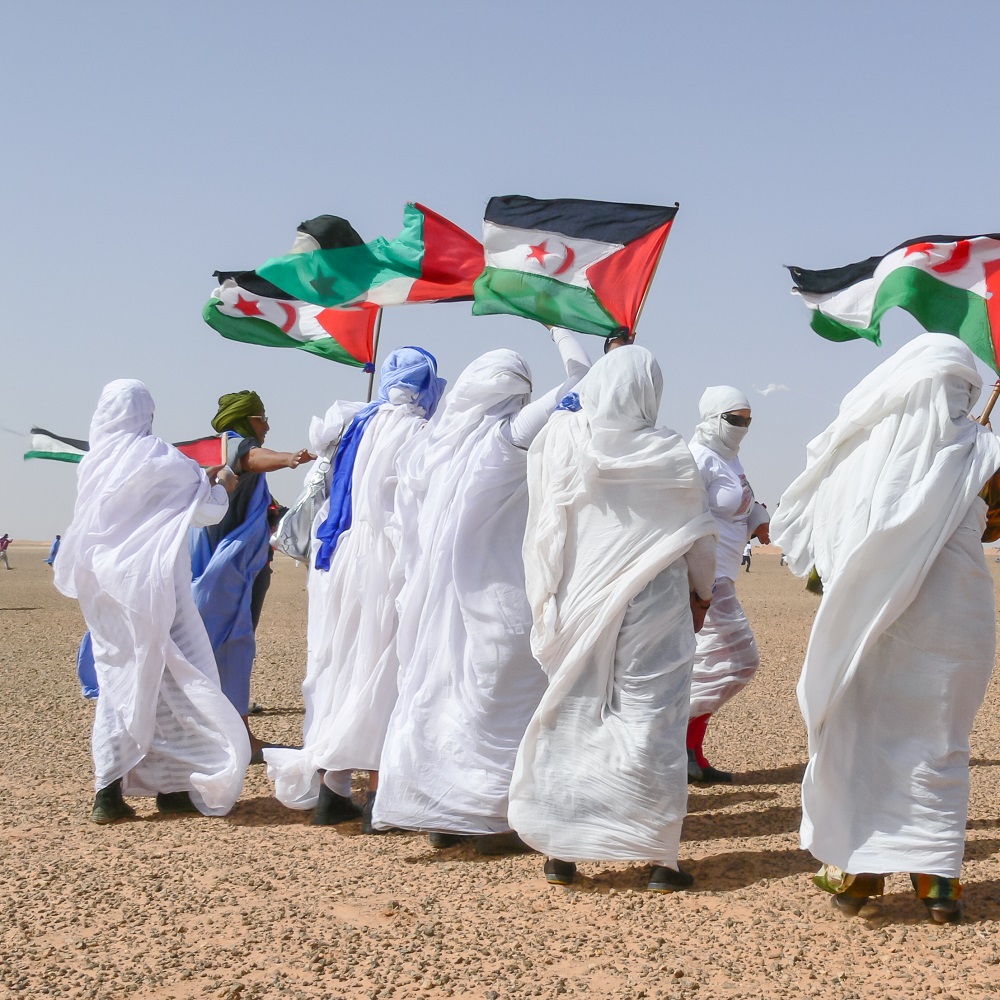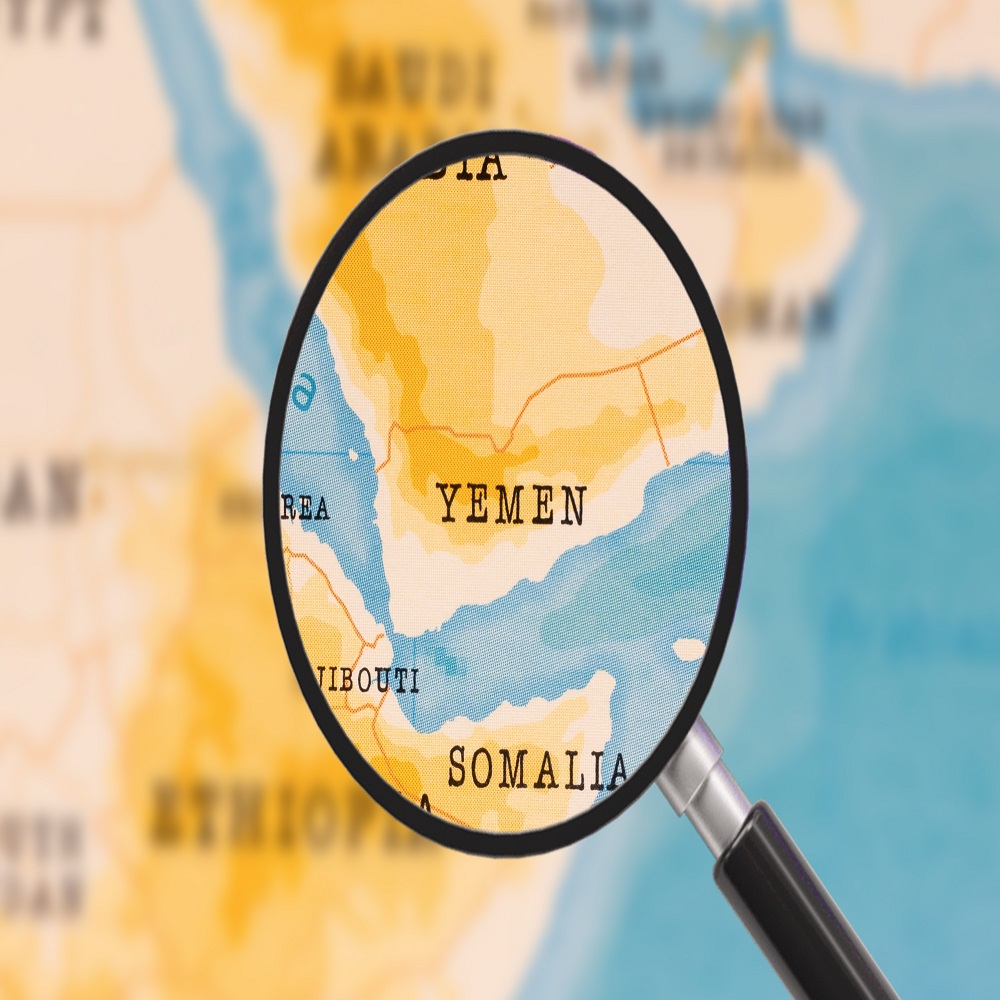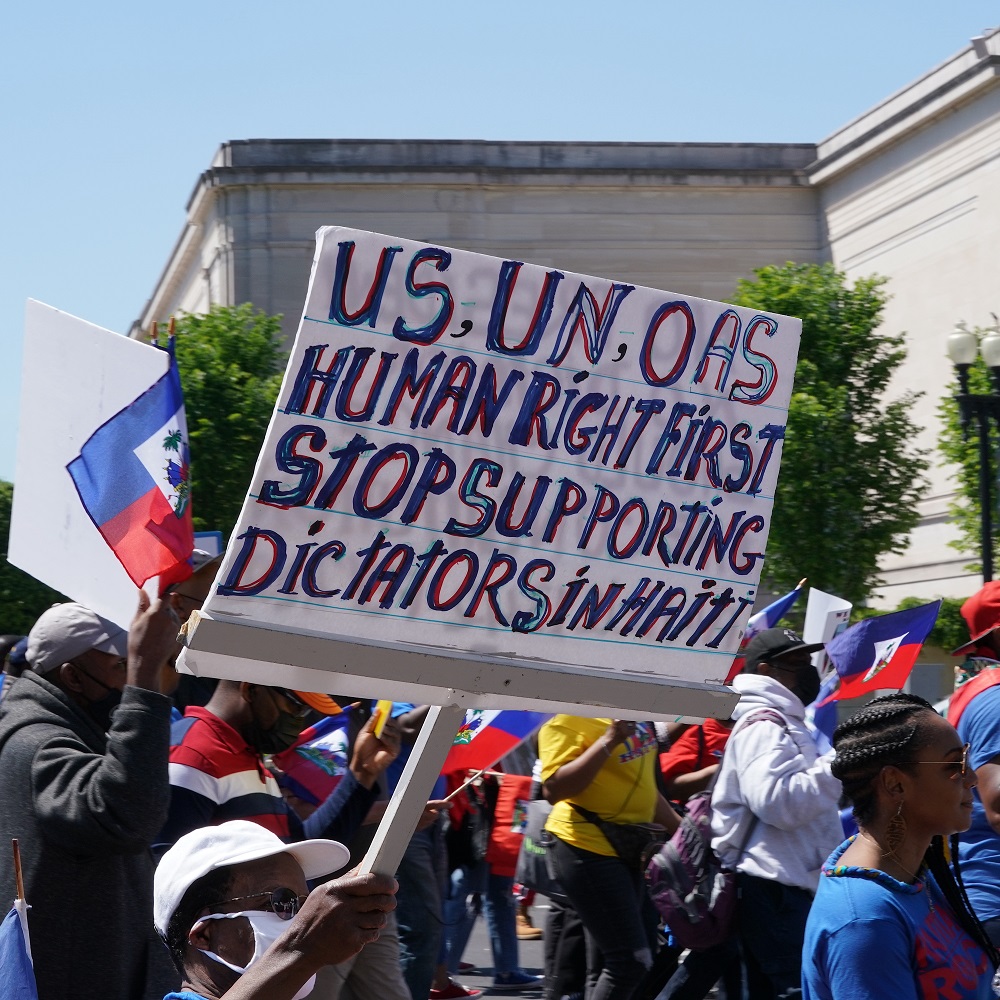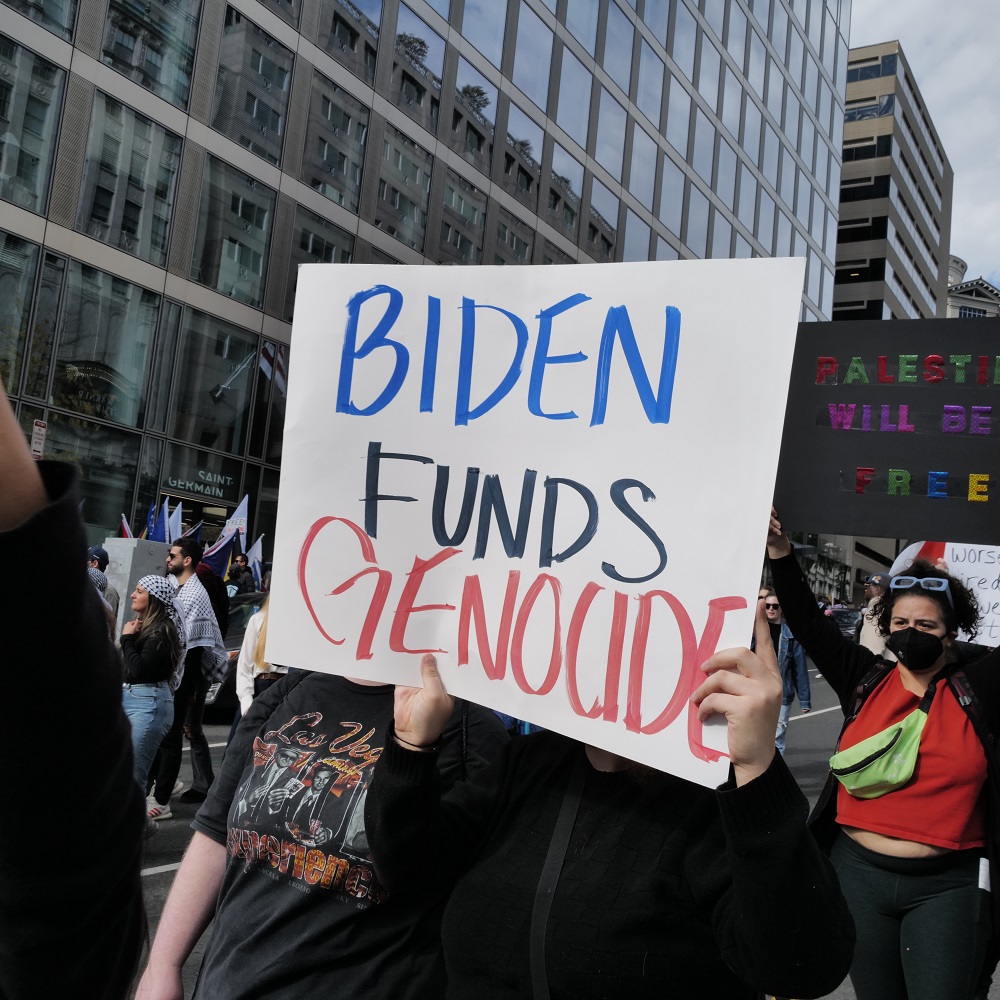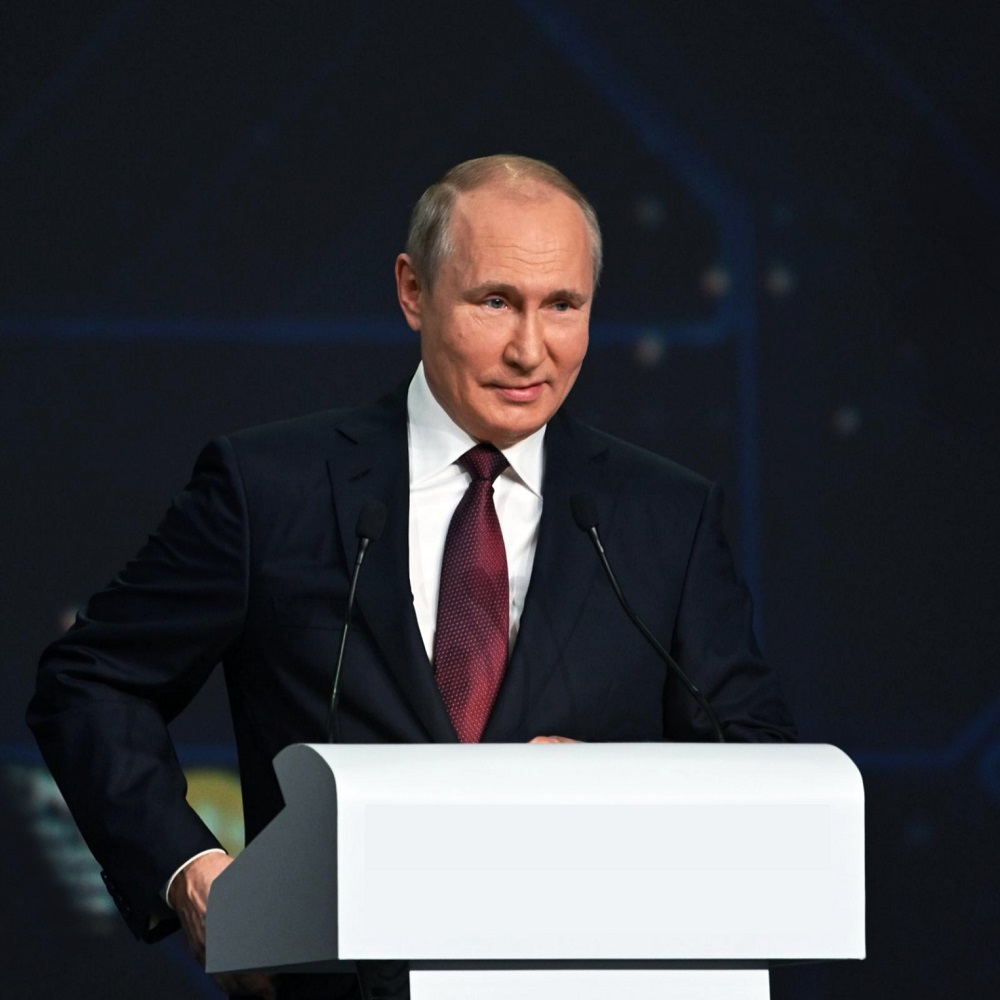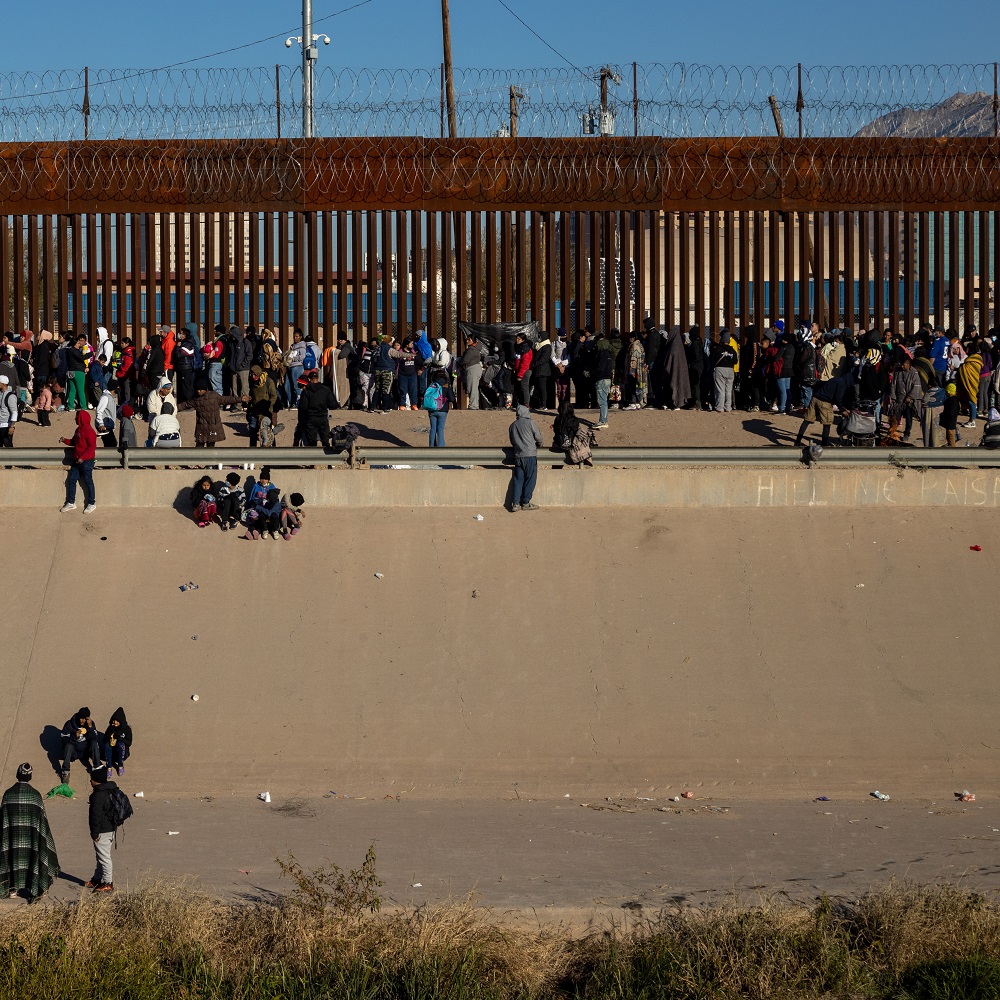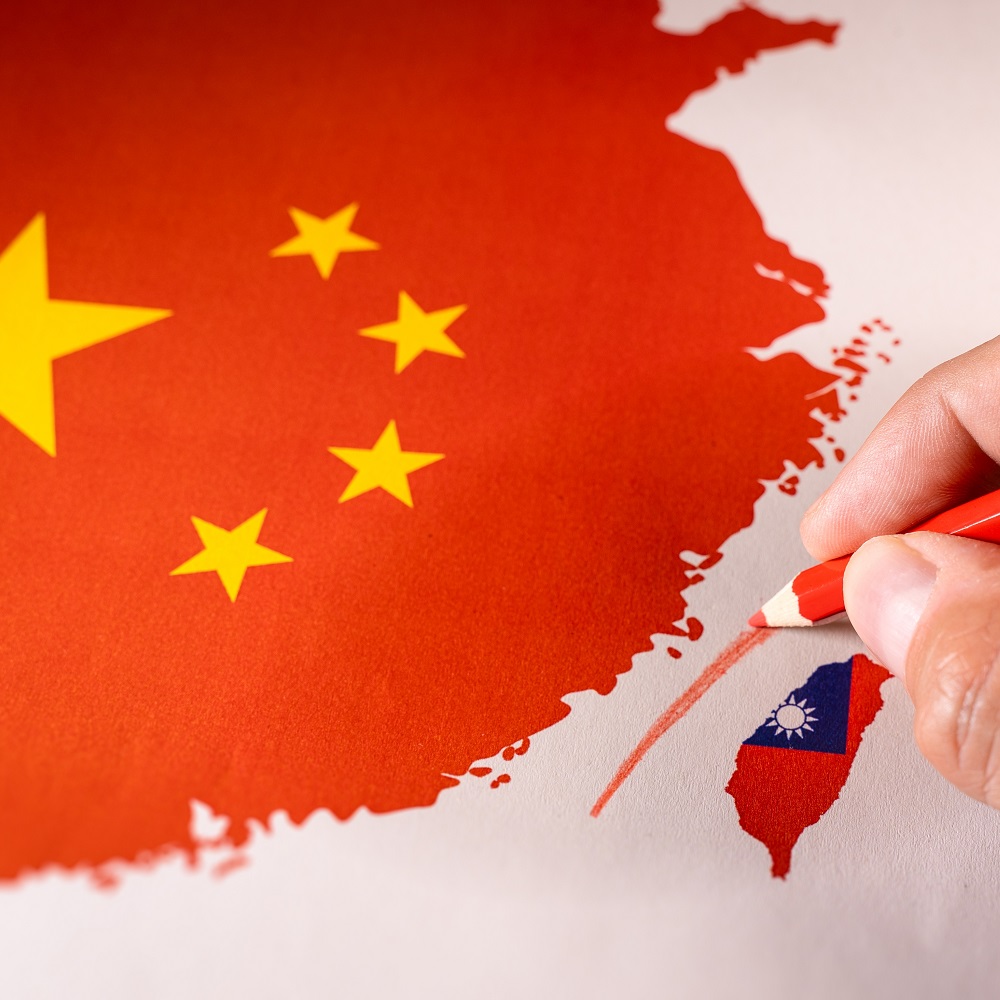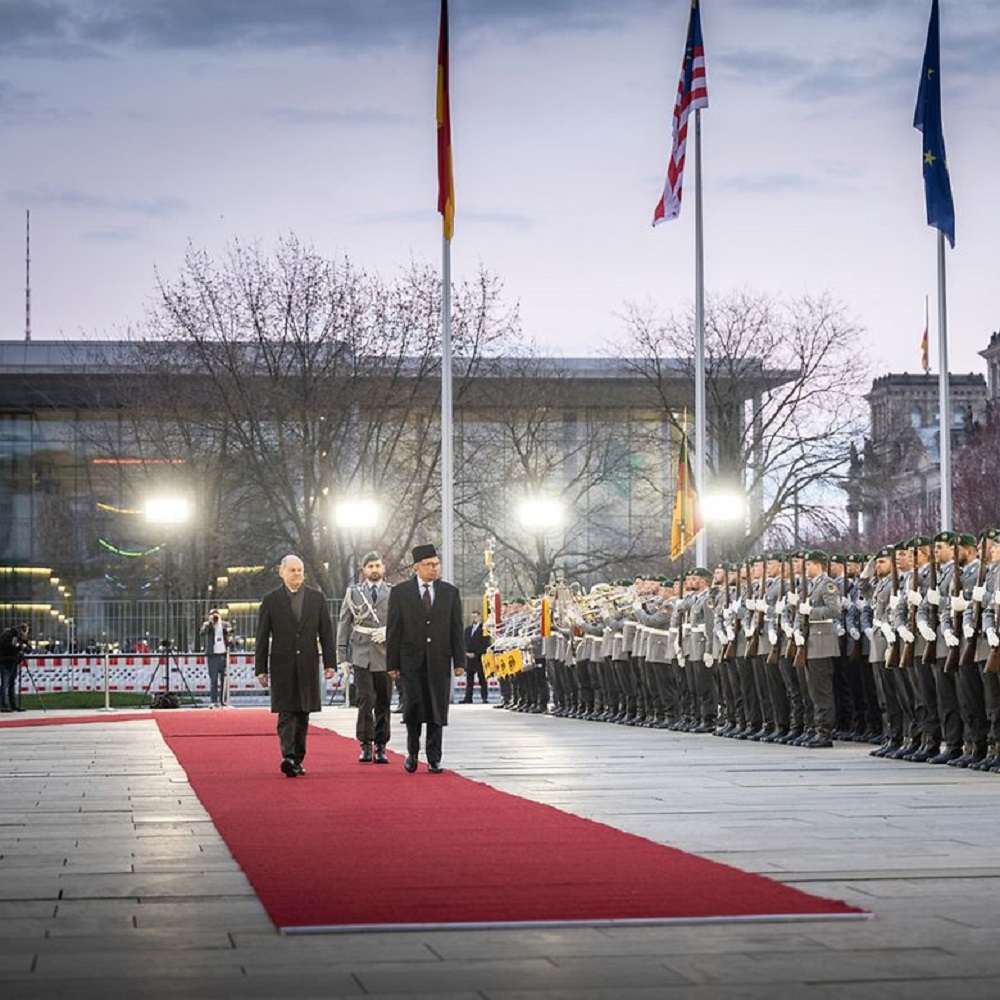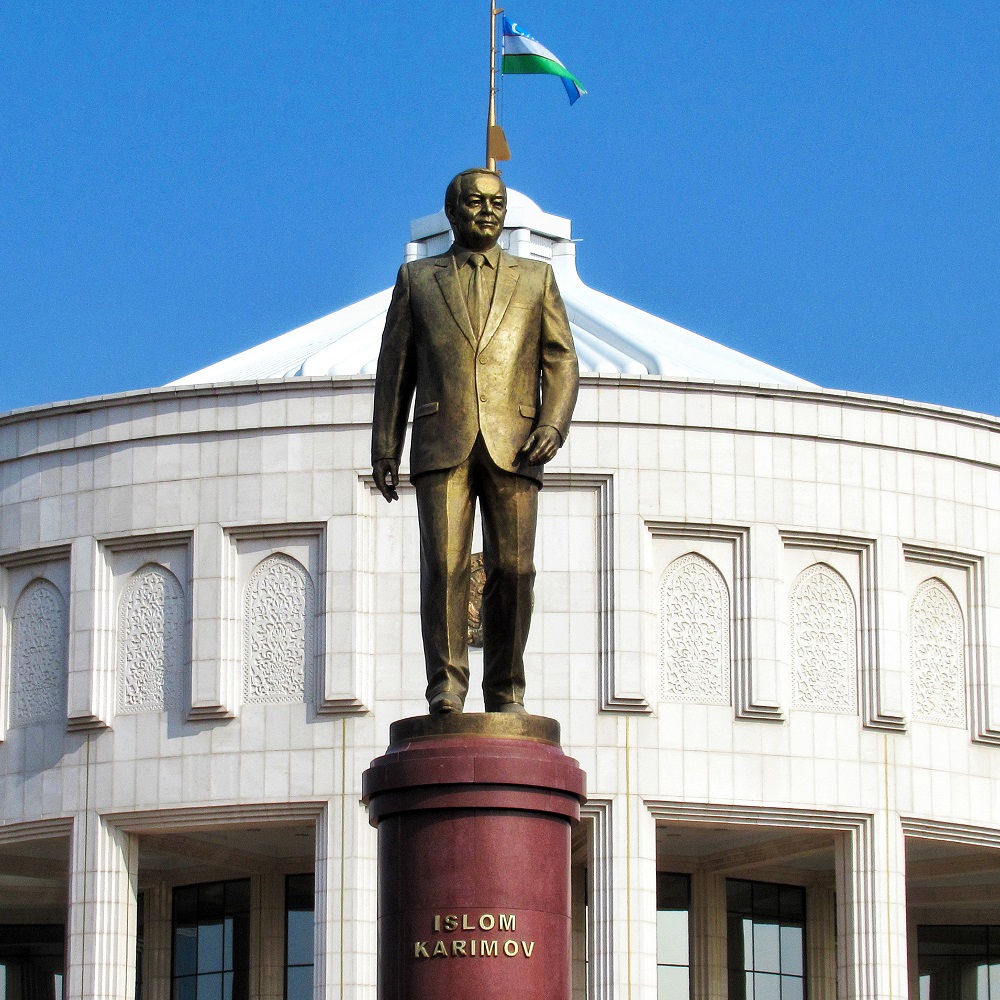The impact of Operation Prosperity Guardian in the Red Sea on the Yemen crisis
by Sergey Serebrov
The U.S.-British coalition’s military intervention in Yemen has become the most dangerous expansion of the Palestinian-Israeli conflict (PIC), taking a heavy toll on the security in the Middle East and creating a parallel hotbed of military standoff in the Red Sea. There is no consensus in the region’s countries on the root cause of the current escalation, with some governments blaming the terrorist sortie of the Qassam Brigades militants from Hamas’ Al-Aqsa Flood (known as Toofan in Arabic) on October 7, 2023, while others—the abnormal situation of the decades-long occupation and blockade of Palestine by Israel, mentioned by UN Secretary General A. Guterres in October 2023. Yet they are all united in extremely negative assessments of the humanitarian consequences of the Iron Swords operation by the Israeli army in the Gaza Strip. The final document of the LAS and OIC summit in Riyadh on November 11, 2023, attended by 57 heads of state, had the most pacifist tone possible, but it clearly condemned Israel’s war crimes campaign and demanded “an immediate ceasefire along with the opening of humanitarian corridors.” While rejecting the adoption of collective non-military measures of pressure on Israel proposed by the so-called Axis of Resistance and a number of other states, a caveat was made that they could be applied individually: “The resolution calls on the members of the OIC and LAS to use diplomatic, political and legal forms of pressure as well as deterrent measures to stop the colonial occupation administration’s crimes against humanity.”
Russian scholars V.V. Naumkin and V.A. Kuznetsov attribute the strategy of the Israeli government and the militarist policies of the U.S. and UK as the main reason for aggravation of the PIC: “Rejecting the draft settlement by founding an independent Palestinian state (within the borders as of June 4, 1967 with the capital in Eastern Jerusalem), prescribed by resolutions of the UNSC, which would exist side by side with Israel, Benjamin Netanyahu’s government is driving the problem into a dead end. And pumping American and British weapons into Israel only prolongs the bloodshed. Continued attempts to resolve the Gaza conflict by force are disastrous for the future co-existence of the two peoples.” Discussions at the UN showed that this conclusion is shared by most countries in the region, i.e. the fuse for spontaneous outbursts of resistance to the existing order remains unextinguished.
Yemen is one such hotbed. Deep political divisions, an unfinished nine-year war with the Arab Coalition (AC) and a massive humanitarian disaster affecting 80 per cent of the population did not prevent the country’s inhabitants from voicing their attitude to the Gaza tragedy. Political activism and anti-Israeli sentiments rose everywhere. The epicenter was 14 of the country’s 22 most populous provinces, controlled by the authorities of Sana’a, where an alliance between the Houthi movement Ansarullah and the core of the country’s former ruling party, the General People’s Congress (GPC), formed a coalition regime in 2016 that recognized Yemen’s current constitution. These provinces are home to more than two-thirds of the country’s population (about 23 million people) as well as the largest cities, such as Sana’a, Ibb and the main Red Sea port of Hodeidah. The internationally unrecognized regime in Sana’a, targeted in March 2015 by a massive AC military operation at the request of the legitimate Yemeni authorities to neutralize it, has suddenly become one of the main centers of the region’s current political dynamics.
The Ansarullah leadership’s public support of the Palestinian resistance has become a powerful springboard for strengthening of its status and authority both within Yemen and at the regional level, consolidating the ideological foundations of the Houthi movement as a new national symbol and political platform for the country. Castigating the U.S. and the UK for aiding Israel with its war in Gaza as “complicit in crimes against humanity,” the movement’s leader sayyid Abdul Malik al-Houthi placed an explicit emphasis on the importance of involving the peoples and governments of all Arab and Islamic states in the Palestinian struggle, while underscoring the vanguard role of Yemen. The Ansarullah leader condemned the Arab states that continued to pursue the course of normalizing their relations with Israel, calling on them to abide by the moral principles of Islam, which do not allow tolerance for the “usurper who clearly violates the rights of the Palestinian people.” He described Hamas’ Toofan operation as “a game-changer due to inflicting tangible losses on the Zionist enemy,” and Yemenis’ support for it as their “religious and moral duty.” Sana’a announced joining the Palestinian war on Israel and its readiness to send “hundreds of thousands of soldiers” at the right moment. The authorities organized the collection and transfer of money to Gazans, and they switched to active military support of the Palestinians in mid-October 2023 by launching missiles and drones towards the Israeli port of Eilat in an attempt to divert Israeli forces and hamper the port’s operations. On November 19, 2023, they arrested the ship Galaxy Leader, owned by an Israeli businessman, enforcing a ban they had imposed in mid-November on the navigation of Israeli ships and cargo through Yemeni territorial waters. Russian Permanent Representative to the UN Vladimir Nebenzya said in early January 2024: “It is impossible to deny what is happening in the Red Sea is a direct projection of the violence in Gaza, where Israel’s bloody operation has been going on for three months,” while the U.S. “has turned the UN Security Council into a hostage by vetoing resolutions on an immediate ceasefire.”
Since October 2023, the leader of Ansarullah has personally called on the people to participate in regular mass solidarity actions almost weekly, as part of a campaign he called “The Battle of Allah’s Promised Victory” and the Holy Jihad. To coordinate the mass demonstrations, which often involved more than 2 million people, and to provide ideological guidance, the authorities in Sana’a established the “Support for Al-Aqsa” committee, which turned those protests into weekly grand-scale political actions. The slogans of these marches, especially after the launch of Military Operation ‘Prosperity Guardian’ against Yemen on January 12, 2024, took on an increasingly militant tone: “You are not alone... we stand together with Gaza!”, “From the faithful people of Yemen—help, help Toofan,” “the Flood of al-Aqsa has already come—it will defeat the insolent countries,” “Al-Aqsa Flood, come and wash away the barriers and walls!”
The Houthi ideology is based on the concept of the “Quranic path” proclaimed by the founder of this movement, sayyid Hussein B. al-Husi (1959-2004). The key tenet is that the consciousness of each Muslim believer and the Islamic community as a whole needs to be reformed and entrenched upon the rails of spirituality and morality as dictated by the holy book, which will make “ummah”, the entire Muslim community, exemplary and advanced. This progress towards the ideal should be led by a spiritual leader, personifying the selfless service to the faith and having genetic affiliation to the descendants of the Prophet’s house—the sada (hence the singular—sayyid). Among his main functions, as the doctrine has it, is to take care of the community’s readiness to defend the moral values of Islam against its worst enemies. Sayyid Hussein listed their names in his cliché (Arabic: sarkha), which he first uttered in a lecture to a youth audience in January 2002: “Allah is great! Death to America! Death to Israel! Curse to the Jews! Victory to Islam!” This clarion call has become a distinctive marker of the Houthi and the Ansarullah movement, and posters with this text have been a permanent feature of meetings, marches, and wall decorations in public institutions and schools since 2016. After the Prosperity Guardian coalition’s bombings commenced, a new term of the “evil trinity” (ash-shir al-thulathi)—Israel, the U.S. and the UK—appeared in the Houthi narrative.
In the expert community, the autonomy and authenticity of the Houthi ideology and socio-political movement with deep Yemeni roots are generally not in doubt. The Houthi were not and are not “agents” or “proxies” of Iran, despite their growing cooperation in recent years. In the Houthi movement, as was correctly noted by the well-known orientalist B. Haykel, the influence of not only Shiite but also Sunni currents of modern political Islam, as well as secular ideologies, including “nationalism and anti-colonialism” [1], is quite conspicuous. The Houthi movement also purports to protect Yemen’s sovereignty, rebuild its economy on the basis of its own resources and modern technology, improve its education system and restore its historical glory as the heart of the entire Islamic world and one of the main hubs of Islamic civilization. Helen Lackner, the British researcher of Yemen, said: “The charge of acting as Tehran’s proxy serves as an insult to an organization that has its own motivations and ideological position.”
After 2016, Ansarullah shares equal seats with the General People’s Congress (GPC) on the Supreme Political Council (SPC) representing in a binary coalition government the central executive authorities in a full-fledged state-type republican system that encompasses provincial and local levels. The regime is based on the old bureaucracy created by President Abdallah A. Saleh, remaining loyal to the coalition authorities in Sana’a after Saleh’s death in December 2017 and retaining the same structure and core, with Ansarullah members added as managers and employees. The SPC is spearheaded by one of the movement’s leaders, Mahdi Mashat, while the government of national salvation is headed by GPC member Abdul Aziz bin Habtoor, a former rector of the University of Aden. The shibboleths of external propaganda characterizing the Houthi as “militias,” “jamaat,” “rebels,” “insurgents,” or “tribes” do not correspond to the socio-political nature of the movement, nor do they agree with the contemporary Yemeni realities. Beside the executive branch, the Houthi are represented in parliament, the judiciary and all security agencies, including the army and intelligence. Together with the GPC, they define the regime’s foreign policy as well as cooperation with the countries of the so-called Axis of Resistance that includes Iran, Iraq, Syria and Lebanon. This comes precisely as a result of the Decisive Storm, a foreign military operation launched nine years ago. According to formal criteria, the Ansarullah organization since 2015, in the situation of a protracted crisis related to the division of the Yemeni nation and the foreign AC intervention, having retained the signs of a socio-political movement, functionally made a leap into the category of transitional actors moving from quasi-state to the state type body. It should also be noted that under the extreme conditions of war and blockade, the coalition regime in Sana’a achieved consolidation, which was not the case (for objective reasons) in the camp of the internationally recognized Government of Yemen (GoY or IRG), which received major military and financial support from the Arab Coalition. Organizationally, since the very beginning, the IRG has been in a state of chronic systemic disintegration that sparked direct armed clashes between its factions.
Mass popular demonstrations in support of Palestine in the IRG-controlled part of the country, which covers about 75% of its territory, were sporadic and less crowded. Rashad Mohammed Al-Alimi, Chairman of the Presidential Leadership Council (PLC), attended the November summit in Riyadh, where he expressed his condemnation of Israel’s military operation in Gaza and Yemenis’ solidarity with the Palestinian people. However, he distanced himself from the hostile stance to IRG policy of the unrecognized regime in Sana’a, especially on the military blockade of Israeli shipping and navigation. “The terrorist attacks by the Houthi in the Red Sea are harming the freedom of global trade and the peoples of the region, doubling above all the suffering of the Yemeni people, whose survival is 90% dependent on imports,” he said. Opinions were divided among the leaders of other factions within the IRG, but most of them supported the establishment of the American-British Coalition (ABC) and the listing of the Houthi as global terrorists by the U.S. on January 17, 2024, which signaled a possible setback of the Yemeni conflict.
The most likely scenario for the conflict, which promises to be protracted and extremely unsavory to the ABC, is for the Anglo-Saxon partnership to exploit the complex military and political environment for a further instrumentalization of existing rivalries.
The above analysis of the Sana’a policy shows that the ABC command could not expect Sana’a to lift the maritime sanctions against Israel through military blackmail, as this would mean a backdown on the entire ideology of the regime, defined by the mentioned Houthi concept of the “Quranic path.” The lifting of the ban on Israeli shipping was promised by the Sana’a authorities only after the Israeli ceasefire in Gaza and the opening of humanitarian corridors, which was officially voiced at all levels even before the launch of the ABC military operation in Yemen. Official spokesman of Ansarullah, Muhammad Abdulsalam, warned the ABC command about this intention immediately after U.S. Secretary of Defense Lloyd Austin announced the ABC establishment in December 2023: “the ABC mission is to provide a cover for Israel and to proceed with illegal militarization of the Red Sea that will not stop Yemen which will continue to provide legitimate support to the people of Gaza.”
U.S. claims that Operation Prosperity Guardian is designed to “undermine and degrade the ability of the Houthi to endanger seamen and threaten global trade on one of the world’s most important waterways” are questionable as well, as the AC’s attempt to accomplish a similar task militarily for nine years is known to have been unsuccessful, ending with a transition to a de-escalation phase in April 2022. Since March 2015, U.S. and UK officers have been represented on the AC command staff, contributing to the Decisive Storm operation by using the same methods, the same weapons and the same intelligence sources as the ABC currently relies on. One of the major military outcomes of the AC’s “old” campaign was the emergence of a localized industrial base at the Sana’a disposal to build and maintain the kind of modern-day arsenal that made the transition to a political settlement of the crisis the most expedient choice for all sides.
Finally, the proposition of the ABC command that the operation in the Red Sea was designed to protect the safety of commercial shipping through the Bab el-Mandeb Strait, which accounts for about 14% of the world’s commercial cargo turnover, also proved to be completely untenable in the first month and a half. Already at the stage of the Anglo-Saxon coalition formation, Russia’s permanent representative to the UN, Vasily Nebenzya, suggested: “They have assembled a so-called ‘international coalition’ (which quite characteristically consists mainly of American ships), which is supposed to ‘ensure security’, although in reality the legitimacy of its actions raises the most serious questions in terms of international law. We should not have any illusions about the true goals of the authors of the resolution. This is not about ensuring the safety of navigation in the Red Sea at all, but an attempt to legitimize (post factum) the actions of the aforementioned ‘coalition’ and have Security Council’s endorsement for an unlimited time.” Operation Prosperity Guardian per se was the main cause behind the escalation of tensions and a threat to the navigation of all other carriers. It is no coincidence that neither the littoral states of this subregion nor the leading foreign states that use this route have yielded to the pressure or expressed any willingness to join the coalition.
Egypt, 10% of whose budget depends on Forex earnings from Suez, saw the ABC action as “a dangerous acceleration of events in the southern Red Sea and Yemen ... with potential risks of a wider conflict in the region due to Israel’s ongoing attacks in the Gaza Strip.” His Excellency Sheikh Mohammed bin Abdulrahman bin Jassim Al Thani, Qatar’s Foreign Minister and Prime Minister, said even before the ABC attacks in Yemen, the “from Qatar’s political perspectives, no military action leads to a resolution. We are closely watching developments in the Red Sea, but our greatest fear is the consequences of being drawn into an endless loop of region-wide tensions. We hope for an early end to what is happening to the civilian ships via diplomatic means. That will be the best way possible.” Essentially, all countries in the subregion agreed that the best way out of the military conflict in the Red Sea would be to fulfill the Sana’a demands to the Israeli authorities, i.e. putting an end to a devastating war in Gaza. Of all the countries in this subregion, only Bahrain, home to U.S. and British naval bases, joined the ABC.
Objective data on the ship traffic through the Suez Canal shows that the drop was only about 2% in the first thirty days after the seizure of the Israeli ship by the Yemeni military. A deeper dive began only after the U.S. announcement of the ABC on December 18, 2023, reaching a record 50% by the end of February 2024, after the strikes on Yemen commenced, when the Sana’a authorities added to their sanctions list the U.S. and UK military and their merchant ships, which became the main targets of their attacks starting in mid-January 2024.
A summary of the first month of Operation Prosperity Guardian was over 400 air and missile strikes by ABC forces on Yemeni territory and more than 25 retaliatory attacks by the Sana’a authorities against ABC and Israeli naval targets with the sinking of the British merchant ship Rubymar carrying ammonia fertilizers in February 2024. Nor has it been possible to stop the Houthi from launching missiles toward Israel. Besides the military risks to shipping, the ABC operation also threatened the ecology of the Red Sea waters, which is an important traditional source of income for fishermen in the coastal states.
The true strategy of the ABC in Yemen can only be judged by the further course and results of the campaign, which promises to have far-reaching consequences for the entire region. Its most likely development will be an attempt to torpedo de-escalation, which has defined the downward dynamic of the “old” military crisis in Yemen involving the AC since April 2022. There are several reasons for this conclusion.
First, the decisive move by KSA and Sana’a to remove the regional component of the Yemeni crisis has been highly successful in bringing it out of the stalemate it hit after the failure of the Kuwait round of UN-sponsored talks in 2016. The de-escalation process was accompanied by exchange visits of official delegations from Riyadh and Sana’a in April and September 2023 and their preparation of a compromise settlement formula that would satisfy both sides. The Houthi surrender as the only scenario for ending the war became a thing of the past, and the consolidation of the Ansarullah political alliance with the GPC core within the ruling regime in Sana’a finally appeared to get a sort of recognition. This shift removed the main motive for the AC to continue the war and meant a reorientation of the regional leader, Saudi Arabia, to deep readjustment of the entire system of subregional relations and to zero out its involvement in external military conflicts. To finalize the process, all that remained was to sign a ready-made roadmap and start preparing a national dialogue in the Yemeni format with the participation of Ansarullah under the auspices of the UN.
Second, de-escalation was largely achieved due to the normalization of KSA-Iran diplomatic relations in March 2023, mediated by China. For the U.S. and the UK, this change meant, among other things, undermining their fundamental long-term geopolitical construct, which had been used for decades to structure the system and dynamics of regional relations across the Middle East. It was based on the exploitation of Sunni-Shiite and Iranian-Saudi contradictions, into which anti-American and anti-Israeli manifestations were also implanted as a sign of “Shiite” (aka “Iranian”) influence in the countries of this region. The conflict in Yemen has long ago proved its complete unsuitability for analyzing the Yemeni realities. The sociocultural ground in this country has ruled out the transformation of Yemeni contradictions into sectarian ones, as the relations between both dominant autochthonous religious communities of Yemen—Shafi’i (Sunni) and Zaydi (Shia)—have remained traditionally tolerant and friendly. The religious framing employed has been much more influential in sharpening their dichotomies with the proselytizing radical version of the Salafi ideology of the Yemeni Muslim Brotherhood* operating within the Islah Party. The attribution of the “Iranian agent” label to the Houthi has generally remained very superficial to Yemeni political discourse proper and has not become a fully effective tool for manipulating this rivalry.
Third, the very fact that Riyadh entered direct negotiations with Sana’a, mediated by Oman, signaled the increasing role of sovereignty in the system of subregional politics and the process of its transition to a more friendly architecture of relations, less dependent on the military presence of extra-regional superpowers in the Gulf and the Red Sea. Back in the summer of 2019, the UAE unilaterally announced the end of its military involvement in the AC operation in Yemen. The KSA’s new strategy toward Yemen has been heading in the same direction. Various attempts by the U.S. special ambassador to Yemen, T. Linderking, to slow down and derail this process were not quite successful. The U.S. emissary either inspired the KSA with mistrust of Iran’s intentions after the restoration of KSA-Iran diplomatic relations, or warned the Arabian countries that the U.S. would not leave Yemen out of its control anyway, saying, in particular, that the final stage of “an inclusive Yemeni-Yemeni political process [should] take place under U.S. auspices” instead of the UN format recognized by all parties.
The UN mission in Yemen, which played an important and very positive role in the success of the “Oman track,” may also have been a source of discontent for the Anglo-Saxon partnership. A roadmap to end the KSA's military involvement in Yemen within three years was prepared by late 2023, which Hans Grundberg, the current head of the mission, publicly announced on December 23. This marked a de facto major step toward the final international legitimization of Ansarullah as a full-fledged participant in the political process.
The struggle to keep the roadmap for a Yemeni settlement afloat, albeit in a postponed mode due to the ABC military intervention, is of fundamental importance for the future status and security systems of Arabia and the Red Sea. This is evidenced, in particular, by the KSA’s choice to consolidate the agreements reached with Sana’a after the Western coalition began bombing Yemen. At a meeting with T. Linderking in February 2024, KSA Defense Minister Prince Khalid bin Salman reaffirmed the Kingdom’s commitment to “provide assistance to Yemen in facilitating a dialogue between the parties to reach a political solution under the auspices of the UN.” In addition to the KSA’s own experience of waging war in Yemen, there is a solid scientific basis for this choice: following a comprehensive analysis of the genesis and state of the Ansarullah organization, the authors of The Houthi Movement in Yemen, a fundamental monograph recently published by the KSA, conclude that “regardless of the final result, it seems that the Houthis will remain a key player in Yemen’s cultural, social, economic and political scenes for the foreseeable future [2].”
Over the years of war, the leading Yemeni centers of political influence (CPIs) within the IRG and both active participants in the AC—the KSA and the UAE—brought about an amalgam of interests, which, in the context of a military intervention by the powerful ABC, risk being manipulated by the neocolonial project of the Anglo-Saxon partnership. By playing up intra-Yemeni contradictions and staging the pulling of certain Yemeni CPIs to their side, the two leading players of the ABC may try to turn them into an instrument of their policy both in the crisis zone and in the entire subregion. Unfortunately, they have serious and objective prerequisites for this attempt at sowing discord. The success of the “Omani track” within the Riyadh-Sana’a bilateral format in achieving sustainable de-escalation in the conflict zone was achieved almost without the participation of all the other CPIs in the IRG. This narrower format created a ground for their dissatisfaction and natural concerns about the current situation. The Emirati actors on the IRG’s Emirati flank, represented by General Aidarus al-Zubaidi’s Southern Transitional Council (STC) and General Tareq M. Saleh’s Political Council of the National Resistance Forces, were particularly wary, directly criticizing certain provisions of the roadmap that, in their view, provided excessive economic advantages to the hostile authorities in Sana’a—for example, their right to a share of the proceeds from the export of Yemeni oil to pay off debts on the salaries of civil servants.
The ABC’s operation against Sana’a provoked something of a revenge attempt on the part of these CPIs within the IRG. President Rashad al-Alimi and the leaders of the Emirati flank of the PLC were quick to express their willingness to cooperate with the ABC, although each of the three CPIs had very different perspectives and goals in mind, both for themselves and for the future of the country. All the old political science constructs introduced to launch and accompany AC’s military campaign began to rapidly return to the Yemeni narrative: the diminutive labeling of the Sana’a authorities as “Houthi,” “militia,” or “rebels”; the reanimation of the Iranian expansion bugaboo through the Ansarullah movement, ostensibly willing to bring the Red Sea under Iran’s heel, etc. At the same time, the political reasons for the rivalry between the CPIs of the Saudi and Emirati flanks in the IRG camp have not disappeared. The probable supply of arms by the ABC to one of the flanks in the AC camp, or even to one of the CPIs on either flank, will inevitably lead to imbalances in the fragile configuration of forces, not only along the IRG-Sana’a Alliance (SA) axis, but also within the IRG camp. The risk of these CPIs clashing with each other is sometimes not lower, and in some scenarios even higher, than with the SA. Suffice it to mention the fact that the official policy of the leading faction on the Emirati flank, the Southern Transitional Council or STC, to withdraw the South within the 1990 borders of the People’s Democratic Republic of Yemen (PDRY), enshrined in the National Charter of Honor of the South that adopted in May 2023, is emphatically denied by most of the other Yemeni CPIs within the same IRG, as well as by both SA members.
The ABC’s military involvement in the internal Yemeni tangle is difficult to coordinate and predict. It carries the risk of completely transforming the situation and ricocheting into the camp of the IRG itself as well as the AC partners backing it. This is exactly the scenario that the Qatari leader warned about, speaking of the endless loop of conflicts into which Arabia is being drawn by the aggression in Yemen recently unleashed by the ABC.
***
In conclusion, we should emphasize the importance of historical and socio-cultural factors, underpinning the notion of identities that play a primary role in conflicts both in Yemen and in the region in a broader sense. Especially because these are particularly visible and instrumental in the current escalatory ladder.
Amar Bendjama, Algeria’s representative to the UN, described what is happening in the Red Sea as a direct projection of the violence in Gaza, reminding that “the primary responsibility for maritime security rests with coastal States — best positioned to ensure the safety of crucial waterways — and underscor[ing] that any collective effort lacking the active involvement of such States is likely to fall short of achieving the desired results.” He also noted that “the Red Sea is more than just a trade route — it is steeped in civilizations and communities with legitimate aspirations and hopes.”
* This organization is declared terrorist and banned in Russia.
1. The Houthi Movement in Yemen Ideology, Ambition and Security in the Arab Gulf / Ed. Abdullah Hamidaddin, I.B. TAURIS, King Feisal Center for Research and Islamic Studies Series, KFCRIS, 2022. P. 21.
2. Ibid. P. 3.
